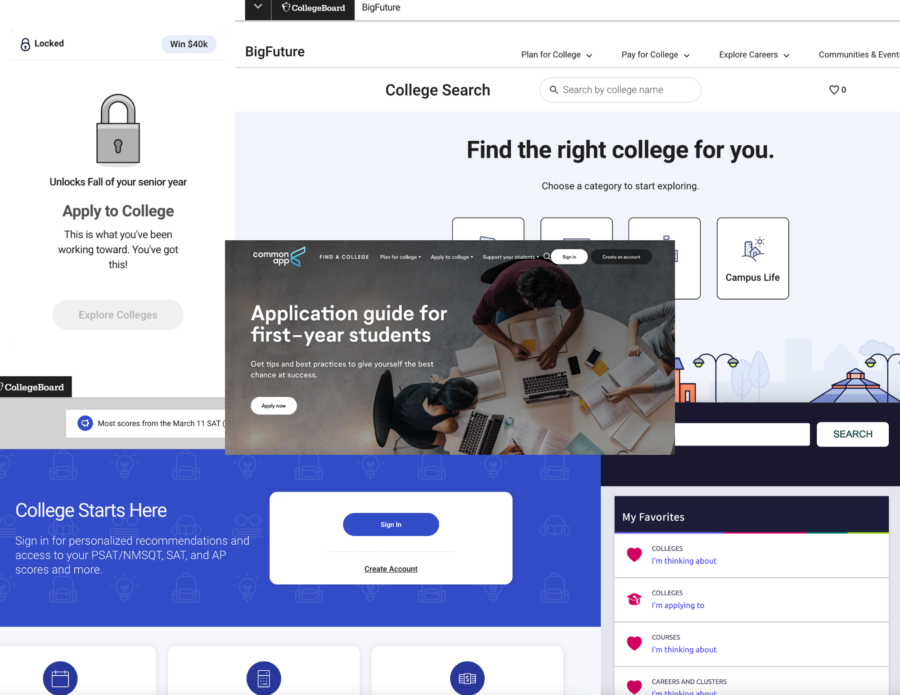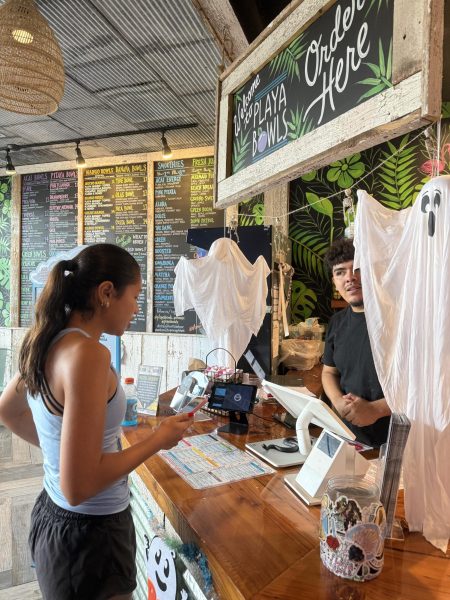How to stand out on college applications
The college application process is extremely extensive including a plethora of personal essays, class statistics, lists of awards, jobs, recommendations, grades, test scores, and more. Finding a way to stand out on these in a sea full of similar applicants is the difference between an acceptance and a deferral.
Step 1: Build up your application
As a high school freshman, put yourself out there as much as you can. Join several clubs, try a sport, and begin discovering what you’re good at and what you’re passionate about. As the year goes on, narrow down your interests and commit yourself to a few things you think will stick with you. Focus on them throughout high school, developing a niche. Colleges look at what passions you have and how you put them into action. It helps admission reps differentiate you from other applicants and makes you stand out in a way not many others can. College and Career Information Coordinator Kathleen Carr said, “I would recommend getting involved in the school community, a club, or an activity that you really enjoy in ninth grade and continuing this throughout your high school career.”
Step 2: Organize what you’ve done
When applying for jobs and internships, a resume is requested. Preparing for college applications is the perfect time to learn how to make a clean and efficient one. Group together all you’ve done in categories of awards, skills, jobs, leadership, statistics, miscellaneous, and any other categories your accomplishments can fill. Figure out what you’ve done most and how it sets you apart from other applicants. Highlight those things in bold fonts or larger lettering. “Being a well-rounded individual will help you stand out. Participating inside and outside of your school community as well as being involved in activities and clubs that you are passionate about and grouping those together properly is vital.” Carr said.
Yale accepted Christopher Li said, “Colleges want to see the way you think about small things like interpersonal relationships but also larger things like society’s most pressing issues. They want to see that you’ve been a proactive leader in your school and community and will continue to do that at their school ultimately to help their reputation right.”
Step 3: Compile a list
No matter how much you’ve done and how evidently you stand out in a crowd, the acceptance process is infamously known to surprise applicants. It’s possible to get into schools you didn’t think you were a contender for, and get denied from those you thought you were guaranteed admission. College counselors recommend creating a list of schools in the categories of super reach, reach, targets and safeties. Having a mix of each leaves applicants with a balanced list, and increases the likelihood of getting into college at all. It is recommended to have about three to four in each category to apply to a sufficient number of schools.
Your donation will support the student journalists of Thomas S. Wootton High School. Your contribution will allow us to purchase equipment and cover our annual website hosting costs.
Maya is a 2024 graduate.







![Editors-in-Chief Ahmed Ibrahim, Helen Manolis, Cameron Cowen, Alex Grainger, Emory Scofield, Hayley Gottesman, Rebekah Buchman and Marley Hoffman create the first print magazine of the year during the October press days. “Only a quarter of the schools in MCPS have programs that are like ours, a thriving, robust program. That makes me really sad. This is not just good for [the student journalists] to be doing this, it’s good for the entire community. What [student journalists] provide to the community is a faith in journalism and that continues for their lifetimes," Starr said.](https://woottoncommonsense.com/wp-content/uploads/2025/10/wmpoFTZkCPiVA3YXA4tnGoSsZ4KmnKYBIfr18p3l-450x600.jpg)